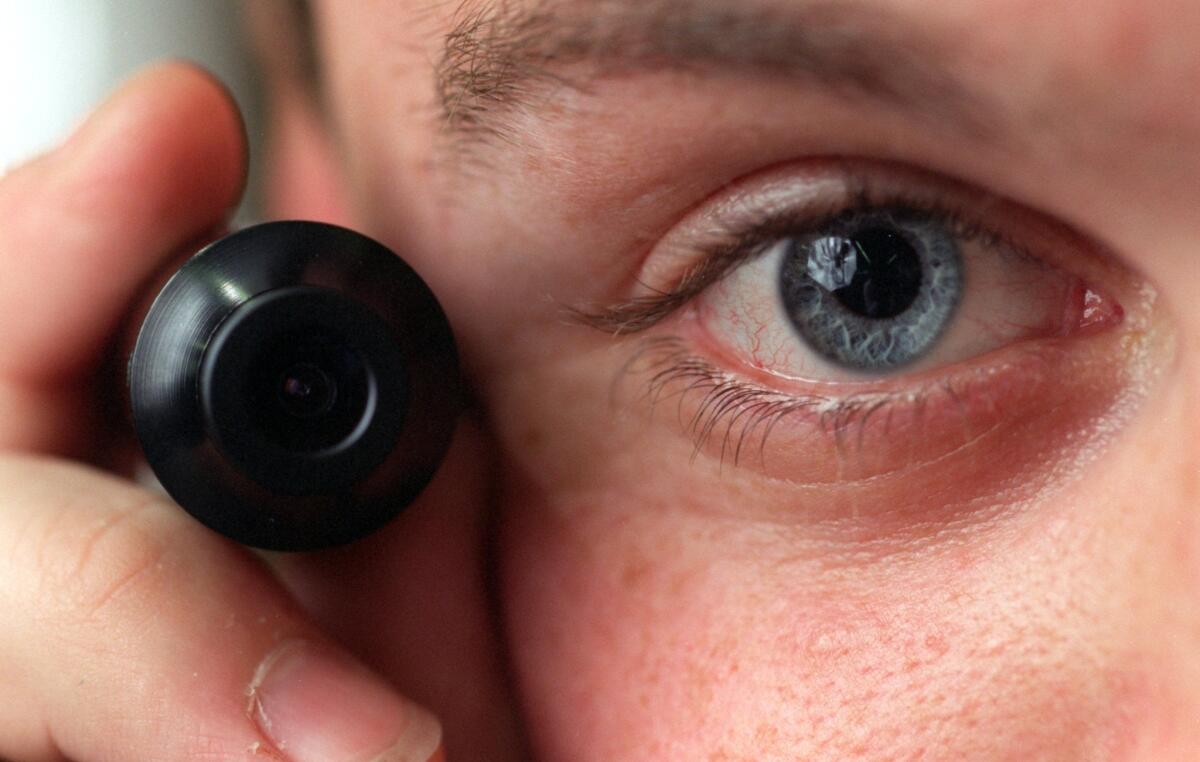Def Con attendees get tips on how to detect, escape surveillance

- Share via
Reporting from Las Vegas — Since Edward Snowden helped reveal wide-scale government snooping programs, the conspiracy-oriented elements of the cyber-security community have become a little more emboldened.
Many describe the series of news articles that resulted from Snowden’s leaks as a seminal moment, when their more far-fetched concerns about privacy could no longer be so easily dismissed as tin-foil-hat paranoia.
This week in Las Vegas, where thousands gathered for the annual Def Con hacker conference, that paranoia was embraced as hundreds filled a large theater to hear Phil Polstra talk.
The associate professor of digital forensics at Bloomsburg University of Pennsylvania told a attendees how to know if they’re being spied on and how to protect against it, all on a tight budget.
“Our government’s assault on the Constitution is pretty well known,” Polstra warned.
Here are some of Polstra’s tips:
Use your phone
Many of the small, hidden cameras on the market these days have infrared lights around their lenses, Polstra said. That light, invisible to the human eye, allows the cameras to keep up the surveillance even in the dark, without getting noticed.
But the light can be detected by smartphone cameras. To see if you’re being watched, Polstra said, get your phone, turn on the camera and scan it around the room. In Polstra’s demonstration, when his phone’s lens passed an infrared light, a bright purple hue showed up on his phone display.
Use your radio
One way to tail people while maintaining a distance, Polstra said, is to buy a bumper beeper, a long, thin tracking device that can be slapped onto a car with magnets. If you’re worried there’s one on you car, turn on a radio, and switch to the AM dial.
If you hear a consistent and loud tone, Polstra said, there’s a likelihood you’ve been tagged.
Know when you’re being followed
If you think you’re being tailed in a car, Polstra warned, the car probably won’t be very distinctive or flashy. It will likely remain at least two cars away. “Typically it’s frowned on to be right behind someone you’re following,” Polstra said. And most pursuers, he advised, will abort after three instances of their targets looking at them or in some other way signaling they know something’s going on.
“When you’re going places, don’t just look ahead. Look around…. Watch for those vehicles that go away and suddenly come back,” he said. “Time it so you’re the last person to go through a traffic light…. Just park your car for no reason. Sit inside for a couple minutes. If you’re real paranoid get out of your car.”
For more tech news, follow @RobertFaturechi







